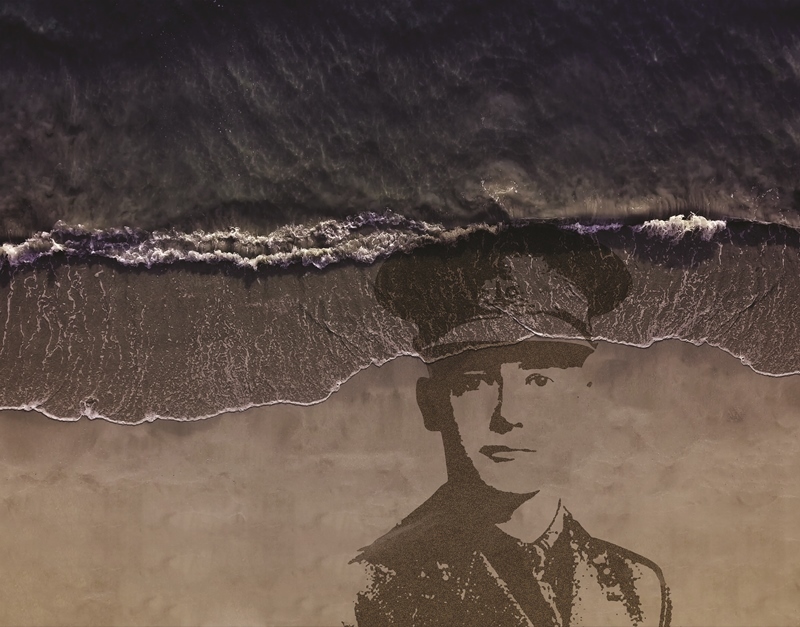
FILM director, Danny Boyle is planning a nationwide commemoration of World War One to mark the centenary of armistice day.
The Oscar winning director, known for films such as Trainspotting and Slumdog Millionaire, is inviting communities across the country to gather on beaches on Sunday 11 November to remember those who left UK shores to serve in the First World War.
The project, Pages of the Sea, will see a large scale portrait of a casualty from the war drawn at low tide into the sand at select beaches across the UK which will then be washed away as the tide rises.
The artworks are part of 14-18 NOW’s cultural memorials to those who died in the First World War.
National Theatre of Scotland leads events at six beaches across Scotland including St Ninian’s Isle beach, Ayr Beach, Scapa beach in Orkney, St Andrews’ West Sands, Burghead Bay beach (exact location TBC) and Cula Bay on the isle of Benbecula in the Outer Hebrides.
Each event centres around the drawing of a large-scale portrait of a casualty from the First World War with a connection to the local community and will be designed by Sand In Your Eye, an artistic company specialising in sand and ice art and sculpture.
The public will also be asked to join in by creating their own portraits of the lost in the sand, be it of their own family members, or unknown fallen soldiers, before the tide sweeps the beach clean again.
In addition, the public are also invited to explore an online gallery of portraits of some of the men and women who served in the First World War, and select someone to say a personal goodbye to either via social media or as they gather in person on beaches on 11 November.
The images are drawn from the Imperial War Museum’s ‘Lives of the First World War’ which aims to tell 8 million stories of those who served from Britain and the Commonwealth.
Visitors to the website can also add portraits of members of their family or community who contributed to the First World War.
Danny Boyle launched the event at Folkstone beach a port town on the English channel, an area integral to the First World War effort.
Renowned war poet, Wilfred Owen was just one of approximately 10 million troops and nurses who passed through Folkstone harbour, either returning due to injury, or leaving to serve on the Western Front.
Thousands of Belgian refugees also landed at Folkestone from September 1914 onwards.
Scottish poet and Poet Laureate, Carol Ann Duffy will write a new sonnet for the project, which will be read by individuals, families and communities on the select beaches on 11 November.
Boyle said: “Pages of the Sea will be a unique moment, when we’ll say goodbye, together, to the millions of men and women who left their shores during the First World War.
“Beaches are truly public spaces, where nobody rules other than the tide. They seem the perfect place to gather and say a final goodbye and thank you to those whose lives were taken or affected by the First World War.
“I’m inviting people to watch as the faces of the fallen are etched in the sand, and for communities to come together to remember the sacrifices that were made by so many that changed our society forever.”
Many beaches across Scotland, including those involved in the project played significant roles in the First World War. Reminders of the time are etched on their landscapes in the shape of the gun emplacements, watch towers and concrete bunkers that can still be seen today.
Jackie Wylie, Artistic Director and Chief Executive of National Theatre of Scotland, said: “The First World War had a devastating impact on Scotland, with tens of thousands of young lives lost and many more forever altered.
“Our nation has an enduring and emotive connection to the sea and our beautiful coastline has seen many come and go throughout history.
“Pages of the Sea will create an artistic tribute, both personal and communal, through art, words, pictures and stories, acknowledging all those who left our shores during WW1.”

Enjoy the convenience of having The Sunday Post delivered as a digital ePaper straight to your smartphone, tablet or computer.
Subscribe for only £5.49 a month and enjoy all the benefits of the printed paper as a digital replica.
Subscribe